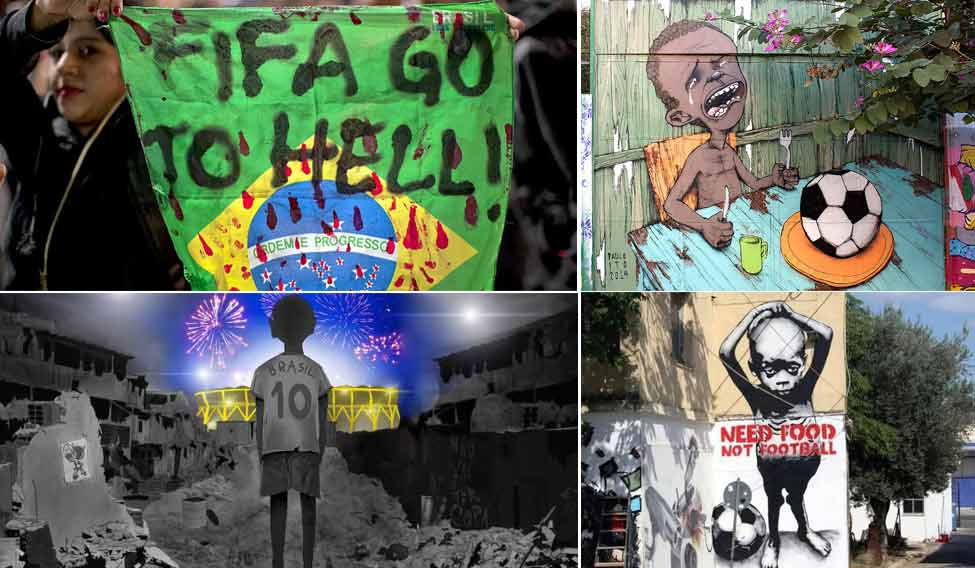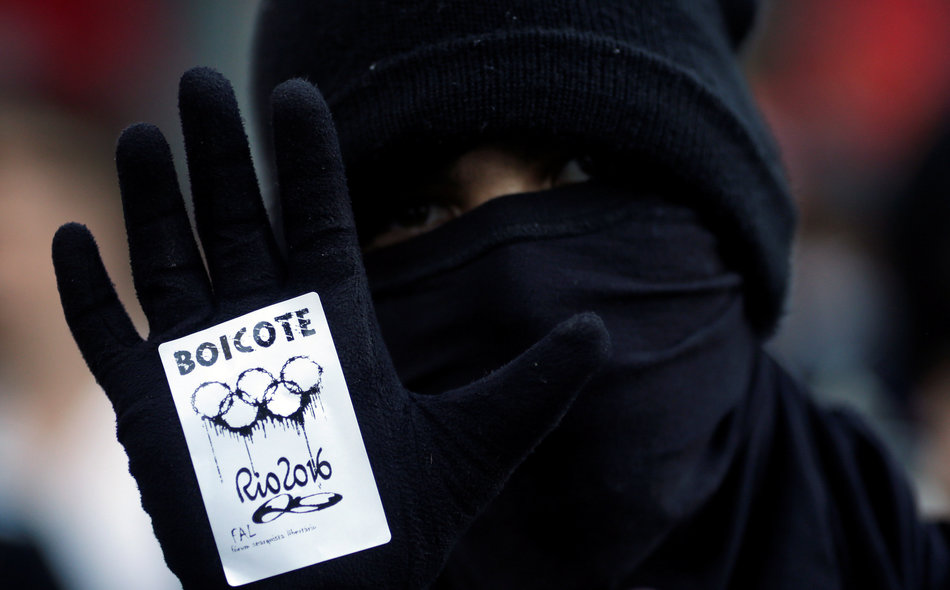The 2016 Rio Games is around the corner. The Olympic torch has reached the host city and is in its final lap. Sadly, the legendary torch is not the only thing that's burning in Rio.
While the world is gearing up for the biggest sports event, the city is witnessing a series of organised protests. Thousands of angry Brazilians are voicing their displeasure over the social and economic costs of hosting the 17-day extravaganza.
The Olympics will cost the country $12 billion and post-event expenses are expected to further burden the already-depleted government coffers. It has once again stoked the debate on developing countries hosting multi-national sports events.
The situation is such that Rio de Janeiro declared a state of calamity, seeking additional federal funding to pay its public servants. The massive spending on the Olympics has led to cuts in education and healthcare. Hospitals have closed down and schoolchildren are out on the streets protesting.
On June 30, outside the international terminal at the Rio airport, a cohort of policemen held a banner that read: “Welcome to hell. Police and fire fighters don't get paid. Whoever comes to Rio de Janeiro will not be safe”.
Even the Olympic torch was seized and extinguished by protesters, during one of the relays. But the worst hit are Rio's famed favelas (slums within urban areas). Home to the Brazilian samba, more than 77,000 favela residents in Rio have been evicted since 2009 owing to the rapid infrastructural changes in the city.
The ongoing protests might give the government a sense of déjà vu, having endured harsh criticism for digging deep into public funds during the 2014 FIFA World Cup. Brazil went through a similar phase of financial struggle having spent nearly $15 billion to host the World Cup.
Although FIFA claimed to provide support to the country, the organisation has been notorious for not overseeing preparations leading up to its tournaments—the latest example being the mounting cases of the much-publicised human rights violations in Qatar, which controversially won the 2022 FIFA World Cup bid.
Terre des Hommes, a Swiss-based NGO, revealed that over 1,70,000 people lost their homes during the preparations for the World Cup in Brazil, due to the building or renovation of stadiums, roads, airports and other infrastructure projects. Families were uprooted and forced to settle in huts without water and electricity.
 A banner, cartoon and murals that came up in protest against the FIFA World Cup in 2014
A banner, cartoon and murals that came up in protest against the FIFA World Cup in 2014
It's a similar situation closer home. Delhi hosted the 2010 Commonwealth Games (CWG), with the hope of proving to the world that India is capable of staging a large-scale global tournament. (Unlike the 2011 ICC World Cup that amounted to Rs 3 billion, and is borne by the ICC, India had to shell out Rs 115 billion for the CWG). The ambitious bid heavily backfired, leaving the country in a mire of controversies, ranging from sub-standard facilities, outbreak of diseases, lack of coordination and poor turnout that left the organisers red-faced. On the other hand, labour law violations, financial deficit and allegations of corruption hit the event hard.
Miloon Kothari, former UN special rapporteur, said: "When one in three Indians lives below the poverty line and 40 per cent of the hungry live in India, when 46 per cent of India's children and 55 per cent of women are malnourished, does spending billions of dollars on a 12-day sports event build national pride or is it a matter of national shame?"
Congress leader Mani Shankar Aiyar lambasted the UPA government's decision to spend lavishly on the CWG, calling the “vulgarity of spending” a “public disgrace”. Business tycoon Azim Premji, too, criticised the “drain on public funds” by saying that the spending was “not justified given that the country had more important priorities facing it”.
Rio 2016 is no different. Another major tournament has been thrust on the nation before the economic and social scars of the World Cup had healed. A recent poll showed that 63 per cent of the Brazilian population believe that the Olympics will do more harm to the country than good.
Sports bodies like FIFA and the International Olympic Committee stage mega-events in developing countries to extend their reach. But, leaving the countries to do all the dirty work by themselves will only destroy the very purpose of bringing these carnivals to their backyard.





